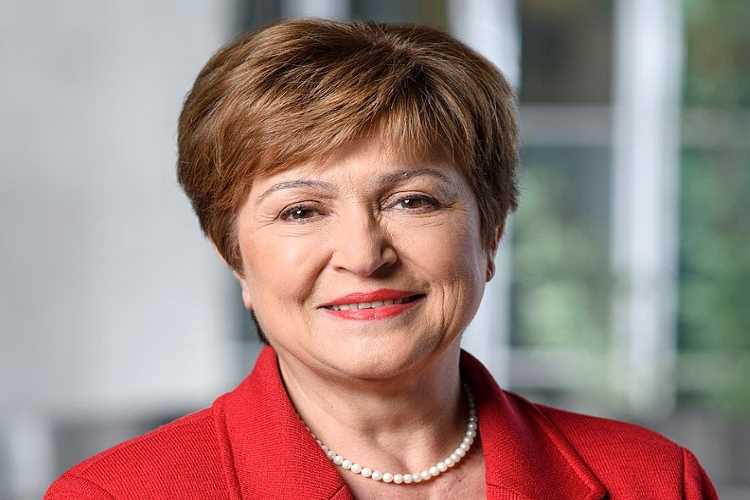
The International Monetary Fund has called for concerted policy action to tide over the global economic crisis triggered by the new coronavirus outbreak. The multilateral agency has called for close coordination between governments to mitigate the economic pain caused by the disease.
Various agencies estimate possible impact of Covid-19 on the world economy between $1.1 trillion and $3 trillion. Forecaster Oxford Economics puts the possible losses at $1.1 trillion, while Bloomberg Economics sees $2.7 trillion losses.
IMF managing director Kristalina Georgieva says while social distancing may help contain the dreaded disease, the world needs the exact opposite prescription to contain the economic impact. In a signed article, Georgieva identifies three action areas to cushion the economic fallout of the outbreak that has been declared a global pandemic by the World Health Organisation.
READ: Indian economy: The spectre of coronavirus looming large
More fiscal stimulus
The governments across the world have taken a range of fiscal measures including a major increase in health spending. While this is important for funding the containment measures and strict monitoring, much more needs to be done to revive the world economy.
The governments must expand efforts to reach the most-affected people and businesses by taking steps such as more sick leave and targeted tax relief. As the virus threatens to infect more people across the globe, there should be a coordinated and synchronized global fiscal stimulus to cushion the economic impact, writes Georgieva.
READ: Coronavirus outbreak may trigger $1.3 trillion losses
She recalls the world response to the global financial crisis in 2009 when the G20 initiated fiscal stimulus worth $900 billion, around 2% of the GDP,
Monetary policy measures
Georgieva calls for steps by the central banks of advanced countries to ease credit flow to the real economy, support demand and boost confidence. She says other central banks could take the US Fed lead in announcing policy rate cuts, asset purchases, and a cut in reserve requirements. She says the central banks should look at what have worked in similar situations.
She says the situation calls for swap lines to emerging markets, an extension of the recent coordinated action by major central banks to reduce the stress in global financial markets. Investors have withdrawn at least $42 billion from emerging markets since the crisis broke out, according to an estimate by the Institute for International Finance last week. This is the largest flight of funds ever. The central banks must address the twin challenges of addressing capital flow reversals and commodity shocks. Steps such as forex interventions and capital flow controls can complement monetary policy action, writes Georgieva.
READ: New coronavirus: Spread to poorer countries pose big threat
Regulatory response
The regulators should maintain a balance between preservation of financial stability, health of banking system and sustaining economic activity. They should give banks flexibility on existing regulations such as capital and liquidity requirements as well as for renegotiating terms for stressed loans.
READ: Air pollution: Scientists will soon be able to track real time data
The IMF is prepared to mobilize its $1 trillion lending capacity to assist member nations, Georgieva says. The Fund can use its rapid-disbursing emergency response toolkit to support nations with urgent payment needs. These instruments can extend $50 billion supports to emerging economies. Assistance of $10 billion interest-free funding could be offered to low-income countries.
The Fund has commitments of around $200 billion already, and it is following up with another 20 countries that have evinced interest. IMF’s Catastrophe Containment and Relief Trust can offer assistance to the poorest nations with emergency relief.
